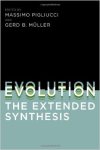The last two essays on Biological Evolution, the fruits of decades of meditation, were proximally suggested by an essay from Massimo Pigliucci, a philosopher and biologist (PhD genetics) initially from Italy and now, armed with a PhD in Philosophy (PhDPh?) from the USA, a professor at CUNY.
I thought Massimo unfortunately engaged in the usual Anglosphere trick of attributing the scientific establishment of Biological Evolution to Darwin, not Lamarck. This is fraught with numerous pitfalls, and adverse consequences, not the least of which being that Evolution deniers are thick on the ground in the USA.
Indeed reducing the Evolution debate to Darwin and a handful of finches, is all too reductive. Reductive to the point of eschewing most of the debate on evolution, as I tried to explain in the preceding two essays.
Lamarck established the Foundations of Evolution, and demonstrated, first of all, that it happened. And that it happened over eons.
Darwin and other made more explicit Evolution through natural selection (which is implicit in Lamarck, who, obviously considered it self-evident from what he described).
“Do we not therefore perceive that by the action of the laws of organization . . . nature has in favorable times, places, and climates multiplied her first germs of animality, given place to developments of their organizations, . . . and increased and diversified their organs? Then. . . aided by much time and by a slow but constant diversity of circumstances, she has gradually brought about in this respect the state of things which we now observe. How grand is this consideration, and especially how remote is it from all that is generally thought on this subject!”
[Text of a lecture given by Lamarck at the Musée National d’Histoire Naturelle, Paris, May 1803.]Lamarck was 57 years old when in 1801 he published his book, “The Inheritance Of Acquired Traits.”
This traits would now be called, genes, somas, prions, transposons, alleles, plasmids, and all what we have not discovered yet…
How these inherited traits are “acquired” is not clear to this day.
In recent decades, it became clear that the situation was at least as complicated as Lamarck had described it, and that the so-called “Neo-Darwinist” oversimplification of the 1960s was a grave error (ironically Darwin was on Lamarck’s side, as he tried to prove “pangenesis”! Pangenesis is pretty much a proven fact now!).
I will suggest in further essays of few more paradoxes and perspectives. Or how strict “Darwinism” contained the germ of its own de-selection as not the fittest theory.
Meanwhile, let Massimo describes it as he sees it!
Patrice Ayme’
Nature magazine recently ran a “point-counterpoint” entitled “Does evolutionary theory need a rethink?” [1] Arguing for the “Yes, urgently” side were Kevin Laland, Tobias Uller, Marc Feldman, Kim Sterelny, Gerd B. Müller, Armin Moczek, Eva Jablonka, and John Odling-Smee. Arguing for the “No, all is well” thesis were Gregory A. Wray, Hopi E. Hoekstra, Douglas J. Futuyma, Richard E. Lenski, Trudy F. C. Mackay, Dolph Schluter, and Joan E. Strassmann.
That’s a good number of top notch evolutionary biologists, colleagues that I very much respect, on both sides of the aisle. My own allegiances have been made clear in a number of papers [2] and a co-edited book [3]. I have been arguing for some time now for what I consider the moderate-yes side of the debate: yes, evolutionary theory does need (and is, in fact, getting) an update, but that update is yet another expansion along…
View original post 3,093 more words
Tags: Darwin, Evolution, Evolution of evolution, Lamarck, Modern Synthesis, Scientia Salon

November 14, 2014 at 6:01 pm |
In connection with some research for ‘the book’, I just came across this quote reputed to be from Richard Dawkins: “My personal feeling is that understanding evolution led me to atheism.”
Seemed worthy of passing on!
LikeLike
November 14, 2014 at 9:33 pm |
Interesting… Yes, that’s directly coming from Lamarck. A quote of his I gave directly said that species were due to Nature (and thus not god!). That was made around 1800…
LikeLike